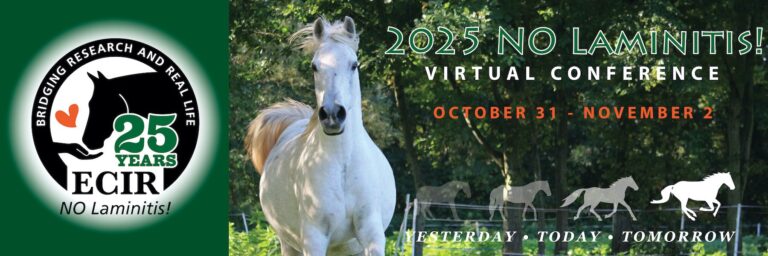
A poster presented by the University of Barcelona (June 2018) discussed some key facts about cryptorchidism in stallions based on a comprehensive literature review. Failure of testicular descent occurs due to multiple factors and genetics. Incidence ranges from 2-8%. Unilateral cryptorchidism is more common than bilateral. Affected individuals mighty show signs of nervousness, aggression and/or stallion-like behavior.
It is suggested that if no testicles are present by 1-2 years of age, then a rectal evaluation should be performed. Transrectal or transcutaneous ultrasound can be helpful, but it might not be entirely accurate about the presence or absence of testes. Blood testing of basal testosterone concentration is variable based on season, age and adrenal secretion and therefore is not definitive. Similarly, hCG testing does not give clear results.
The most definitive test for cryptorchidism is with the anti-Mullerian hormone (AMH) as a biomarker for the presence of testicular tissue. A cryptorchid stallion has much higher levels of AMH than an intact stallion.


![[Aggregator] Downloaded image for imported item #18375](https://s3.amazonaws.com/wp-s3-equimanagement.com/wp-content/uploads/2025/09/30140031/EDCC-Unbranded-26-scaled-1-768x512.jpeg)
![[Aggregator] Downloaded image for imported item #18387](https://s3.amazonaws.com/wp-s3-equimanagement.com/wp-content/uploads/2025/09/30141404/EDCC-Unbranded-19-scaled-1-768x512.jpeg)
